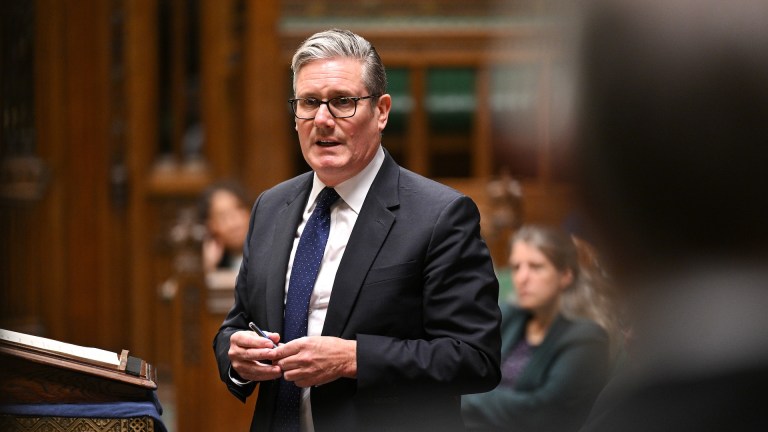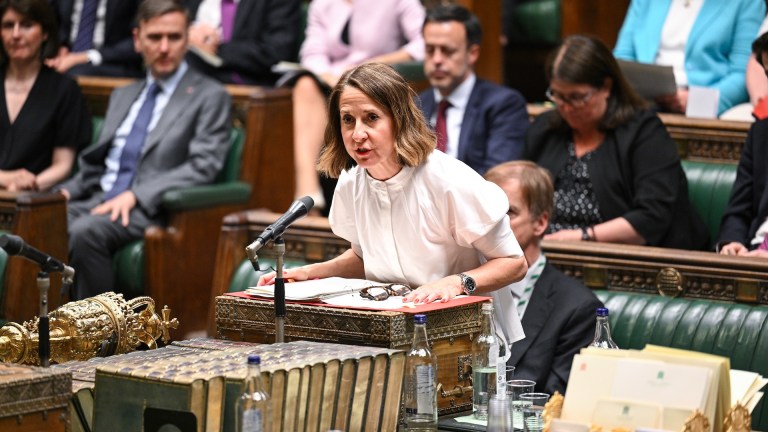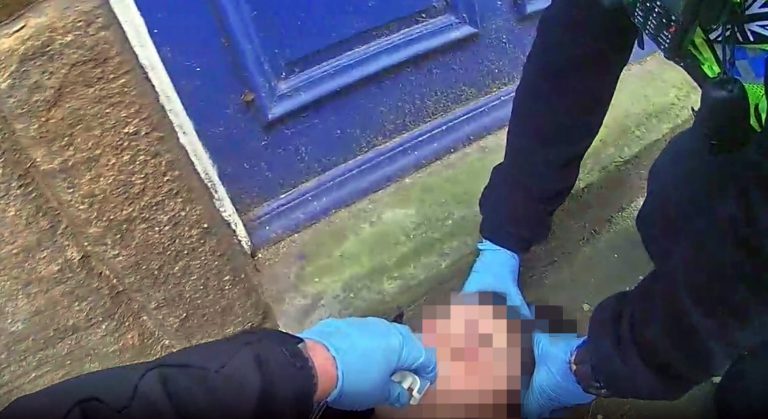58,000 new plans put in place
The percentage of special needs pupils without an EHC plan has risen to 4.8% – up from 3.1% in 2019. In England, 1.2 million pupils with SEN do not have a plan in place, a year-on-year increase of 4.7%.
At the same time, the number of EHC plans has risen by 11.4% year on year, with 58,000 new EHC plans put in place in 2023. In total, 575,000 children have an EHC plan – a record high number.
The plans are typically put in place for children with autistic spectrum disorder, while pupils with speech, language and communication needs are the most common group with SEN.
‘We normally have a fight on our hands’
Before even getting to the point of an EHC plan, the costs mount up. The special needs coordinator at the school will be pulled out of class to complete paperwork, meaning Gibson must spend on cover supply or pull another staff member away from their job to fill in. Extra staffing is needed to work out the interventions which work for a child. Then bringing in an educational psychologist to do the assessment costs hundreds of pounds. To save costs, groups of children are sometimes looked at together.
Even then, an EHC plan is not guaranteed. “We normally have a fight on our hands,” said Gibson, with two or three resubmissions the norm. “It’s massively frustrating to say the least,” she adds.
In years gone by, Gibson might have had 1% of children in her school with high needs who should be in a specialist school instead. Now, it could be as high as 10%. When an EHC plan is put in place, the school must fund the first 10 hours out of its own budget.
Advertising helps fund Big Issue’s mission to end poverty
“What you’ll find now in mainstream schools is we’re actually housing children in schools that don’t fit their needs, because the schools that have provisions that do fit their needs are oversubscribed to and there’s no room for growth,” Gibson said. ”It’s becoming an ever-increasing detriment to their needs and their education and their safeguarding.
“Mainstream schools are all for integration and inclusion, but we need our buildings upgraded, we need specialist help, specialist resources. We need to be able to grow with the child’s needs. And that’s not happening.”
‘They find it really difficult to manage’
“I’m increasingly applying for EHC plans for students that are year nine, year 10 that aren’t coping,” said Debs Gwynn, who works as a senco – or special educational needs coordinator – at a secondary school in the North West.
“That’s when we particularly start to see students lose their self-esteem, their self-confidence, their school attendance completely plummet, because they can see the gap between them and their peers is getting bigger,” said Gywnn. “They find it really difficult to manage. Being a teenager is hard enough as it is, but all those additional things going on as well, it makes it even harder.”
Gwynn has seen an increase in children with social, emotional and mental health needs, as well as communication and interaction needs, since the pandemic.
“I think that’s a knock on, or a legacy of Covid and lockdown, people not being able to go out and not interact with others,” she said. Not all children with SEN will need an EHC plan, Gwynn noted.
Advertising helps fund Big Issue’s mission to end poverty
“There are some students in mainstream settings, including our own, who should be in specialist and are waiting for places to become available,” she said.
‘Children and young people are becoming more distressed’
To put an EHC plan in place, an educational psychologist must assess the child’s needs. A report must be produced and a plan put in place within 20 weeks of the original request. The new statistics released by the Department for Education show requests for assessments increased by 20.8% in 2023, while 50.3% of EHC plans were issued within the 20 week limit.
Besides the gap, the brute number of EHC plans being issued is a concern for educational psychologists, said Dr Cath Lowther, general secretary of the Association of Educational Psychologists (AEP). An increase of 84% in 10 years has explanations beyond a blunt increase in need, she said.
“What we are seeing is that schools are not able to meet children and young people’s needs because of the funding crisis, austerity, really narrow curriculum, pressures on teachers, and the lack of access to specialists like education psychologists early on,” Lowther told the Big Issue.
Educational psychologists, usually employed by local authorities, are being overworked and facing increasing time pressure to produce their reports, Lowther said. There are the equivalent of 2,102 full-time equivalent educational psychologists in England. But to deal with the 101,000 extra EHC plans issued in the last year would require the full-time attention of 721 educational psychologists.
The effect is a vicious spiral: early intervention is missed and children are referred only when the need is already severe.
Advertising helps fund Big Issue’s mission to end poverty
“We’re not around to support children and young people at those very young stages, and therefore those needs are escalating, children and young people are becoming more distressed, finding it more challenging, and that for us is really heartbreaking. We want to get in early and prevent those struggles,” Lowther added.
Councils are turning to private staff, with the AEP discovering an annual budget of £40m for locum and agency educational psychologists to address the shortfall. The catch is that these are more expensive – in some cases costing around £1,600 per report.
In addition to paying £1,872 for three days of work from a local authority-funded educational psychologist, Gibson must bring in private educational psychologists to cover the shortfall. These cost £2,400 for 30 hours of work – with five to six hours worked per day, including the time taken to put reports together. All together, Gibson must find a minimum of £4,272 a year – and if the school needs more assessments, which they usually do, more money must be found.
In the end, pupils suffer, said Lowther: “We are seeing a real escalation of need because children are not getting the support early. They find things more difficult, they get more distressed.”
Fixing the crisis
The education workers interviewed by the Big Issue all pointed to a common, obvious factor behind the crisis: money. For example, the £10,000 per pupil funding for special schools has been frozen since 2013. Gibson said a fundamental review of planning and funding for special needs pupils is needed.
But there were deeper drivers: namely a narrow curriculum, with a reliance on GCSEs and formal assessments as the way to measure a school. Stricter behavioural policies, coming from central government, also place increased strain on spcial needs pupils.
Advertising helps fund Big Issue’s mission to end poverty
“It is vital the next government prioritises urgent action to address this crisis,” said Paul Whiteman, general secretary at school leaders’ union NAHT.
“That needs to start with action to write-off high-needs budget deficits, a ‘needs analysis’ of the funding required to support pupils with SEN in both mainstream and special schools, and a review of place planning, specialist places and admissions to ensure every child can attend the school best suited to meeting their long-term needs.”
Do you have a story to tell or opinions to share about this? Get in touch and tell us more. Big Issue exists to give homeless and marginalised people the opportunity to earn an income. To support our work buy a copy of the magazine or get the app from the App Store or Google Play.










